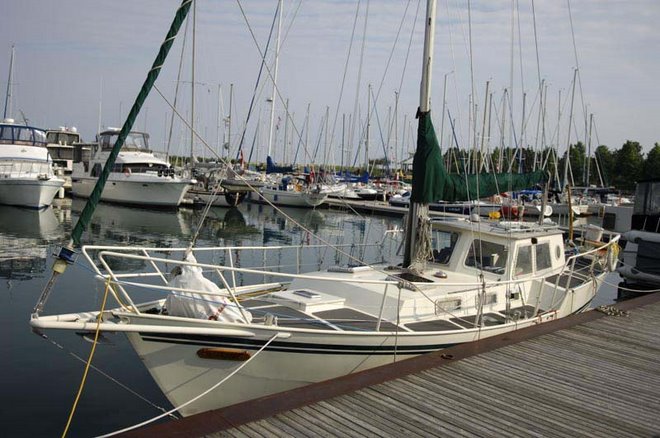 |
| Surprisingly clewless |
He was also a poor, if enthusiastic, sailor. Tales from Einstein's American life, comprising the last 22 years of it, are clear on the point that the great physicist seemed to have no sense of direction, experienced difficulties with his line controls and even keeping his mast stayed, and was regularly so oblivious to time and tide that he would often ground out on sandbars.
And he couldn't swim.
 |
| Einstein and vacation pal. Note Einstein's "women's sundials". |
But like so many sailors not burdened by an excess of formal skills, Einstein certainly seemed to enjoy his time on the water. Reportedly, he would spend hours becalmed scribbling down his thoughts with pencil and pad, and clearly, he was able to think of ways to bring his radical physics down to the level of (relatively) easy explanation.
Certainly, when one sails out of a boat club, there are plenty of opportunities to see excellent seamanship. Some people, and I count myself among them, seek out situations of boat, wind and weather to improve their sailing skills, and books are consumed and courses taken to that end.
 |
| Space and those shrouds are curved. |
For the most part, however, the restorative and relaxing process of sailing, rather than its relative efficiency, would seem to be the goal of some of the sailors at my club, and of Einstein, who sailed a very nice boat given to him in Germany...until the Nazis stole it.
Of course, seamanship requires both vigilance and focus in order to make use of its precepts. Einstein wouldn't have been the first scientist or sailor to have his mind drift farther than the boat, but there is also suggestions that for all his nautical vagaries, Einstein could actually sail perfectly well when his mind was on it.
 |
| Einstein's German boat: state of the art for 1929. |




